Executive insights
CEOs and leaders comment on Hampton Roads' present and future
Executive insights
CEOs and leaders comment on Hampton Roads' present and future
Virginia Business asked five Hampton Roads leaders to discuss how regional cooperation could directly impact their industries, how they’re coping with staffing shortages and what their hopes are for the region’s future.
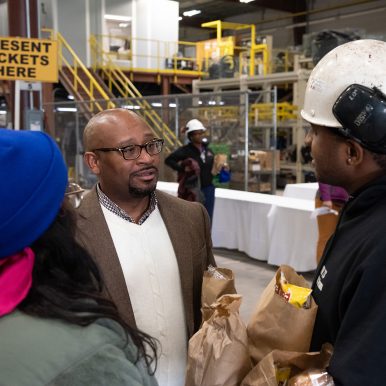
XAVIER BEALE
Vice president of human resources and trades, Newport News Shipbuilding, Newport News
Most Hampton Roads leaders say they’d like to see more regional cooperation. What specific project or sector of the local economy do you think would benefit
most from this?
Education and workforce training. Newport News Shipbuilding is the largest industrial employer in Virginia, with more than 25,000 people, so we draw employees from throughout the region. Arbitrary lines that designate localities, school districts or community college territories have no effect on our hiring. Regional collaboration among training providers would create more effective outcomes for trainees and employers. There’s been positive progress, but more work is needed to meet the needs of the region’s current and future employers and workforce.
Which jobs are hardest for you to fill, and what is being done to improve that?
The biggest challenges right now are welders and shipfitters, as well as attracting and retaining experienced professionals with portable skills, such as engineers, business management and human resources [professionals]. Newport News Shipbuilding is taking aggressive action to recruit and retain talent — however, this is not a short-term problem. We need to hire around 21,000 people over the next 10 years, so enhancing regional pipeline programs is key. Our goal working with our community partners is to ensure we have enough skilled talent to support NNS, but also our suppliers and other businesses across our region.
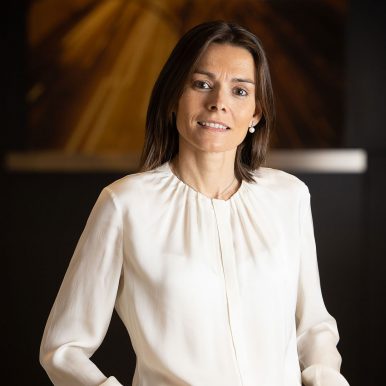
ANNA BONET
CEO, Elizabeth River Crossings OpCo LLC, Portsmouth
What specific project or sector of the local economy do you think would benefit most from regional cooperation?
All companies can relate to the labor and staffing challenges right now. Together we could work to create a robust, empowered workforce.
Sustainability is another opportunity for a collective approach. Coming from Spain, I continue to be amazed by the amount of waste that is generated [here] and the lack of recycling programs. In the region, more electrical vehicles and alternate power resources such as wind and solar are needed. Together, we can become greener.
Your company finances, operates and maintains the Elizabeth River Tunnels connecting Norfolk and Portsmouth. How is toll technology changing, and can it help improve traffic congestion?
We need to provide mobility solutions for drivers, and that means making their trips more convenient. Technology is moving faster to provide solutions, some of which we are seeing already with free-flow tolling.
Free-flow tolling [using an electronic system instead of toll booths] reduces travel times for everyone, reduces crashes and creates a more reliable, predictable travel experience. Additionally, it reduces carbon emissions and improves fuel usage for drives, which is critical for the high gas prices everyone is experiencing today.
Additional technology we’re seeing more of is in-vehicle telematics, a technology built directly into the vehicle [using GPS]. In the past, telematics was only available in higher-end vehicles, but more and more manufacturers are building it into new vehicles. In-vehicle telematics communicate vehicle and travel information to improve safety and vehicle operation. In-vehicle telematics are already being used in Virginia’s new Mileage Choice Program that launched on July 1.
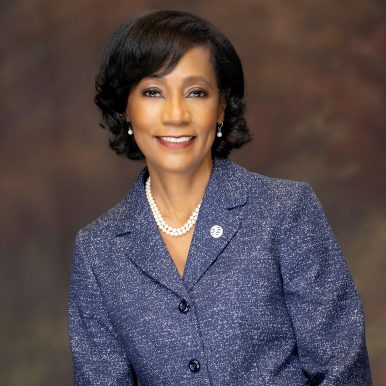
MARCIA CONSTON
President, Tidewater Community College, Norfolk
What specific project or sector of the local economy do you think would benefit most from regional cooperation?
Supporting the development of offshore wind in Hampton Roads will require regional cooperation to recruit, train and upskill an emerging workforce. Today and in the coming years, the need for skilled laborers to support the various areas required to build, install and maintain offshore wind turbines will continue to increase. This growing industry will provide generations with opportunities for employment as the region comes together to support this innovative technology.
Community colleges are a critical provider of workforce training in Virginia. How does that impact TCC’s goals and offerings?
As one of the largest providers of higher education and workforce services in Hampton Roads, TCC’s vision is “to be our community’s first choice for education, opportunity, partnership and innovation.”
To achieve this vision, the college remains focused on providing our industry partners with a skilled workforce to help support their goals. We continue to expand our workforce and career and technical offerings to meet the increasing demands of the region in health care, skilled trades, manufacturing and, eventually, wind technology. This growth is a common thread in our strategic plan, Innovate 2026, which aligns the college’s goals with current and future endeavors for our region.
As we continue to transform training throughout the region, it is important that TCC is serving not only adult learners looking to change careers or expand their industry knowledge, but also the next generation of skilled technicians through our dual-enrollment program. This program offers high school students an opportunity to earn college credit before graduation in areas that will propel Hampton Roads’ workforce forward.
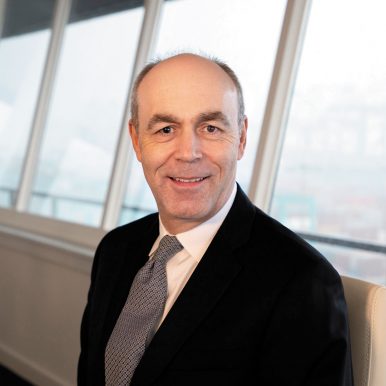
STEPHEN EDWARDS
CEO and executive director, Virginia Port Authority, Norfolk
Siemens Gamesa Renewable Energy S.A. is renting part of the Portsmouth Marine Terminal to build its first North American factory to manufacture turbine blades for offshore-wind farms. Is the port open to leasing more land to other companies?
We are always open to the possibilities of private investment inside of our terminals. While Siemens Gamesa is a good example, it is not the first company to lease space on Virginia Port Authority property.
At Richmond Marine Terminal, Scoular Co., a large international grain exporter, has operations, and at Norfolk International Terminals, another larger grain and feed exporter, Fornazor International Inc., has operations. We are also talking with a company about the possibilities of developing an export operation inside the terminal at Virginia Inland Port. The goal is to find the best fit and a long-term commitment with a growing company that needs to reach markets across the globe.
How is the port handling hiring and retaining employees, particularly in the current labor market?
To remain competitive with current workforce challenges, our recruitment efforts have shifted to focus on tapping into local talent partners for support and networking with skill-specific partners. We have also enhanced our partnerships with local associations and institutions to create a talent pipeline for both current and future hiring needs. Internally, we are elevating our workforce by being more intentional in our leadership and development programs [and] benefit and compensation offerings, as well as other engagement initiatives.
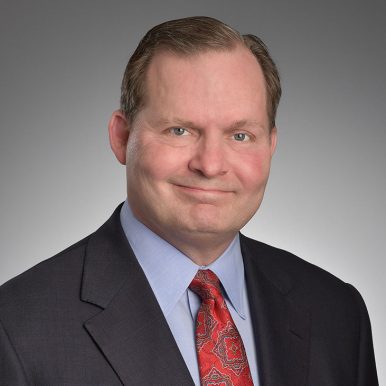
DENNIS MATHEIS
President and CEO, Sentara Healthcare, Norfolk
Sentara is collaborating with Old Dominion and Norfolk State universities and Eastern Virginia Medical School to establish a collaborative academic health center and school of public health. How do you expect this to improve the region’s health care and workforce training efforts?
Working with our regional health care and educational partners to create an integrated, state university-based medical school is something I am very passionate about.
All four organizations — ODU, NSU, EVMS and Sentara — are committed to tackling health care access, health equity and other pressing public health issues in our region. The ONE School of Public Health will help us closely align efforts that have traditionally been fragmented, to address these issues more efficiently and effectively. It also will strengthen our region’s educational research capabilities, help attract and develop the talent we need in the future and secure more robust funding through federal, state and private resources.
How is Sentara working to attract and retain employees, especially in-demand health care professionals?
Over the years, we’ve implemented numerous creative strategies to help us address staffing challenges and hard-to-fill positions, including the development of an internal staffing pool that allows us to deploy our own highly qualified clinical professionals throughout the system when and where they are needed.
Nonetheless, long-term solutions must be implemented alongside shorter-term changes. Prior to the pandemic, a national clinician shortage was predicted to slowly extend through 2030. The pandemic exacerbated the confluence of factors contributing to the labor shortage, accelerating and amplifying it. Sentara is expending considerable effort, education and resources toward workforce pipeline development, especially around school-age children and young adults. This work is vital to the long-term sustainability of our collective health and well-being.
s

















